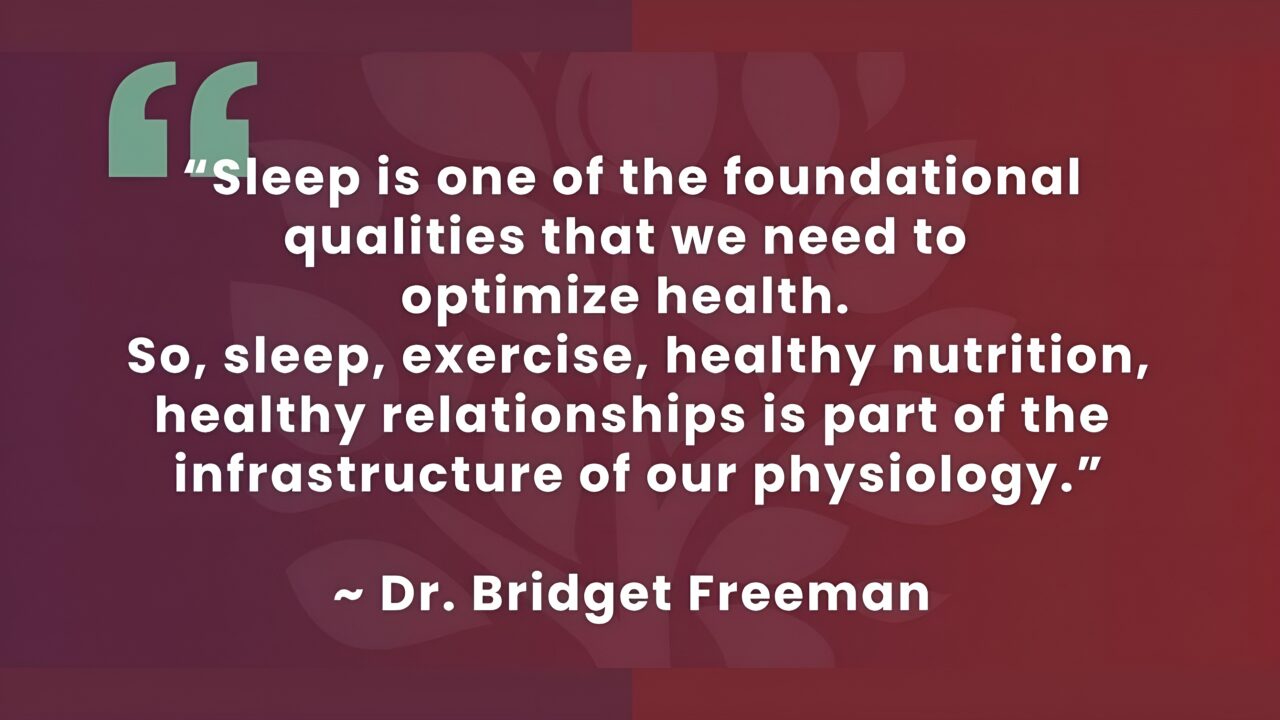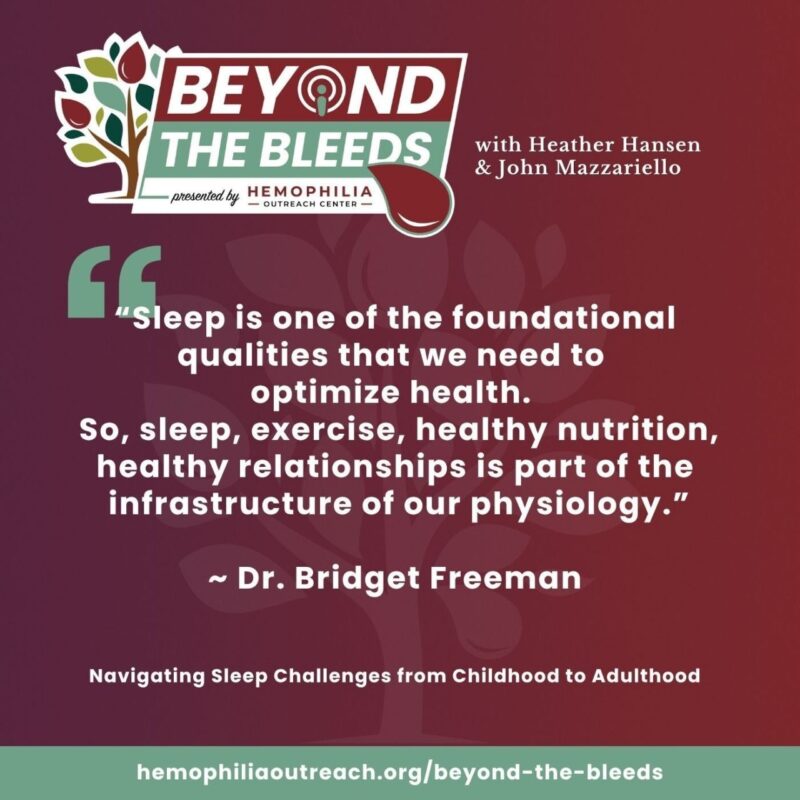
Dr. Bridget Freeman Explains Why Sleep Is Crucial for Chronic Care
Hemophilia Outreach of Wisconsin Inc shared some noteworthy insights from Dr Bridget Freeman on Linkedin:
“Welcome to Beyond the Bleeds, where real stories and heart meet medical insight.
Did you know your sleep habits could be the most critical part of your wellness routine?
On the latest episode of Beyond the Bleeds, we dive into why sleep is not just about getting enough hours, but about quality, consistency, and overall health with pediatric hematologist Dr. Bridget Freeman.
Here are three top takeaways from our conversation:
Sleep is Foundational for Health: Sleep, along with exercise and nutrition, forms the “infrastructure of our physiology.” Consistent, deep sleep patterns are crucial for growth, memory consolidation, and even emotional resilience.
Shortchanging Sleep Has Real Costs: Chronic sleep deprivation impacts immune function, increases risk for chronic illnesses (like diabetes, heart disease, and even certain cancers), and can’t truly be “repaid” with weekend catch-up naps.
Daytime Habits Matter: Caffeine, late-night screen time, and evening excitement disrupt sleep cycles. Solutions? Dim lights early, set a consistent bedtime alarm, and try Epsom salt baths or magnesium for relaxation, while being cautious with over-the-counter sedatives.
Prioritizing quality sleep isn’t just about feeling rested; it’s a long-term investment in your health and performance. For more science-backed insights (including why naps really matter!).”
You can check the full episode with Dr. Bridget Freeman here.

Explore more on Hemostasis Today.
-
Feb 24, 2026, 16:18Salmaan Dalvi: Mapping Rare Diseases Across East and Central Africa
-
Feb 24, 2026, 16:16Wolfgang Miesbach: Game‑Changing Data on Intensive FVIII Replacement in Haemophilia A with Hypertrophic Synovium
-
Feb 24, 2026, 16:01Is It Safe to Briefly Stop Anticoagulation After VTE? – RPTH Journal
-
Feb 24, 2026, 15:58Anastasia Conti: Honored to Receive the Roche Foundation Grant for Independent Research in Onco-Hematology
-
Feb 24, 2026, 15:55Courtney Lawrence: Targeted Donor Screening Reduces Transfusion-Transmitted Babesia Cases
-
Feb 24, 2026, 15:30Aswin K Mohan: Practical Tips for Preparing Before, During, and After Blood Donation
-
Feb 24, 2026, 15:24Stéphanie Forté: The Hidden Burden of Stroke in Adults Living with Sickle Cell Disease
-
Feb 24, 2026, 15:13Tagreed Alkaltham: Equity in Emergency Care Through a Blood Bank Lens
-
Feb 24, 2026, 14:57Joseph Raffaele: Can Improving Mitochondrial Quality in Immune Cells Alter Immune Aging Markers?

